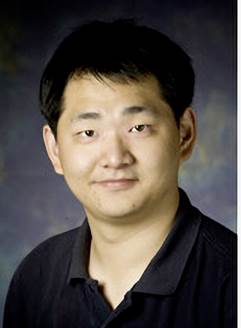Strategic Learning for Cyber-Physical Resilience: The Confluence of Games, Control, and Learning
The Montreal Chapters of the IEEE Control Systems (CS) and Systems, Man & Cybernetics (SMC) cordially invite you to attend the following in-person talk, to be given by Dr. Quanyan Zhu, the Department of Electrical and Computer Engineering, New York University (NYU).
Date and Time
Location
Hosts
Registration
Speakers
Dr. Quanyan Zhu
Strategic Learning for Cyber-Physical Resilience: The Confluence of Games, Control, and Learning
The rapid growth in the number of devices and their connectivity has enlarged the attack surface and made cyber systems more vulnerable. As attackers become increasingly sophisticated and resourceful, mere reliance on traditional cyber protection. Resilience provides a new security paradigm that complements inadequate protection with resilience mechanisms. A resilient mechanism adapts to the threats and uncertainties in real-time and strategically responds to them to maintain the critical functions of the systems. In this talk, we discuss several learning paradigms that enable resilience for both IT and OT systems, emphasizing their roles in defending against three primary types of vulnerabilities: posture-related, information-related, and human-related vulnerabilities. Within this framework, we explore three application domains—moving target defense, defensive cyber deception, and assistive human security technologies. The learning algorithms also have vulnerabilities themselves. We discuss the future challenges of strategic learning for cyber security and resilience.
Biography:
Dr. Quanyan Zhu received B. Eng. in Honors Electrical Engineering from McGill University in 2006, M. A. Sc. from the University of Toronto in 2008, and Ph.D. from the University of Illinois at Urbana-Champaign (UIUC) in 2013. After stints at Princeton University, he is currently an associate professor at the Department of Electrical and Computer Engineering, New York University (NYU). He is an affiliated faculty member of the Center for Urban Science and Progress (CUSP) and Center for Cyber Security (CCS) at NYU. He is a recipient of several awards, including NSF CAREER Award and INFORMS Koopman Prize. He is an Associate Editor of IEEE Transactions on Aerospace and Electronic Systems. He currently serves as the technical committee chair on security and privacy for the IEEE Control Systems Society. His current research interests include game theory, machine learning, cyber deception, network optimization and control, cyber and physical system resilience. His research has been funded by DARPA, IARPA, ARO, NSF, DHS, and DOE. He is a co-author of several recent books: Cognitive Security: A System Scientific Approach (with L. Huang), Cyber-Security in Critical Infrastructures: A Game-Theoretic Approach (with S. Rass, S. Schauer, and S. König), Game Theory for Cyber Deception (with J. Pawlick), and Cybersecurity in Robotics (with S. Rass, B. Dieber, V. M. Vilches).


 Add Event to Calendar
Add Event to Calendar
